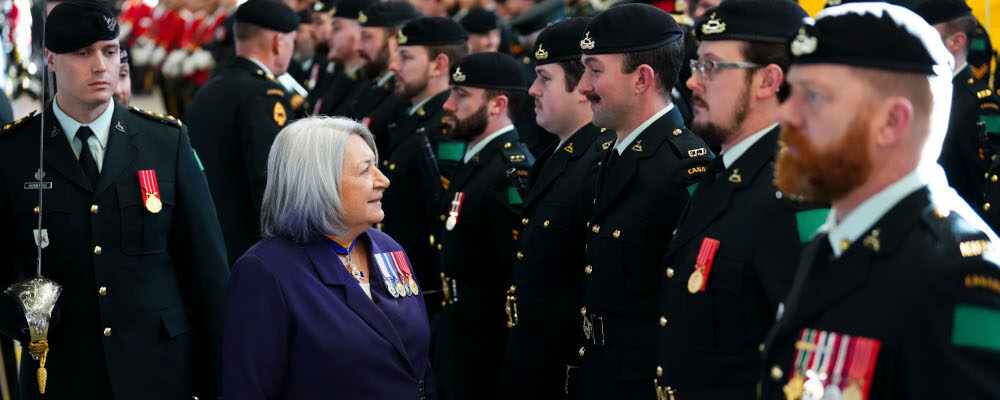Last week, the government announced its long-awaited selection of the F-35 fighter as the replacement for the CF-18. One aspect that sticks out over the 13-year saga has been the cascade of low-quality information that has guided the public conversations and likely affected government policy. Ironically, many of the same commentators who are currently criticizing the broad failure of government policy surrounding the CF-18 replacement are repeating the mistaken thinking that led to this failure when they call to cancel the Canadian Surface Combatant program.
This muddled level of civil discourse pervades conversations about defence in this country. When national parties have leadership contests, it’s common to see serious candidates claim that Canada should “return to its peacekeeping roots” despite that concept’s near irrelevance to international security today. Basic knowledge of defence issues is lacking, not only among the general public but, even more critically, at key institutions of governance and society. This has serious consequences for Canadian defence and security policy.
One only needs to look at the series of key institutions that should help to shape policy, contextualize issues, and provide oversight, including journalism, think tanks and academia, oversight agencies, and parliament. However, Canada’s institutions are lacking in each area when compared to our foreign peers.
Take journalism, for instance. In Canada, there are approximately six full-time journalists on the defence beat, complemented by another seven or so general assignment reporters who spend at least part of their time covering these issues. While they have broken many important stories, their ability to cover the entire scope and depth of the defence file is insufficient.
By comparison, one defence publication group in the U.S. (Sightline Media) has nearly 25 reporters and editors alone. Major general publications, like the Washington Post, Politico, or New York Times, all have significant defence bureaus. The situation in the U.K. is similar, with Janes, Financial Times, and the Economist all providing strong defence reporting outputs.
The situation in academia and among think tanks is not encouraging. Canada has only a handful of independent think tanks that focus on defence issues, and often only as part of their broader public policy mandate. In contrast, the U.S. has dozens of organizations that do such work, many of which are dedicated to security and defence issues. Most Canadian organizations are also minuscule in terms of size and funding levels compared to their U.K., Australian, or American counterparts.
Of course, the number of Canadian think tanks is higher if one includes those connected to universities (though the same can be said of other countries). But, even here, the situation remains less than ideal—especially following the 2012 demise of the Government’s Security and Defence (SDF) program, which had funded scholarships and university centres throughout the country. While the Department of National Defence (DND) belatedly created the MINDS (Mobilizing Insights in Defence and Security) as a replacement, the funds allocated to universities and researchers remain below the level of funding offered by SDF.
While government bodies are not traditionally considered part of civil society, oversight agencies and parliamentary committees play a similar role in cultivating knowledge and outside thinking in most countries—that is, except in Canada. Independent bodies like the Office of the Auditor General or Parliamentary Budget Officer simply do not have the staff or capability to be truly effective in their remit. Canada has less than 10 auditors working on national defence issues, and on average they only conduct two defence-focused studies a year, which is wholly insufficient for DND with its nominal annual budget of over $20 billion. The quality of their work should also receive greater scrutiny. Both bodies have far fewer people involved and produce fewer works than equivalent agencies in Australia or the United Kingdom, to speak nothing of the United States, where the Government Accountability Office has over 400 staff involved in the defence-related fields, producing approximately 80 reports in the past year.
Canada’s parliament is another critically under-resourced institution. MPs, senators, and their committees have relatively few staff (typically only one staff member that focuses on the portfolio). The House and Senate defence committees’ work is supported by a pool of approximately five researchers seconded away from the Library of Parliament. These numbers are simply insufficient to support the committees in their oversight role.
The U.S. Congress is not a great basis for comparison due to the greater power invested in it through America’s bicameral system, but it does provide an interesting counterpoint of a properly resourced system. The four House and Senate defence and appropriations committees have approximately 70 full-time professional staff between them, in addition to each member’s personal staff. Staff members often have a decade or more experience in their position in addition to service within the government and/or military, as well as advanced degrees in the field. They make important contributions to the operation of the Department of Defense.
None of this is meant as a slight to anyone involved in any of these sectors in Canada, the vast majority of whom are engaged in good-faith efforts. The problem is there’s simply a lack of capacity, skills, and resources to effectively provide oversight and commentary on major defence issues.

Two groups benefit from this situation more than any other: the political leadership and, by extension, DND. Both frequently skate by criticism or scrutiny because there are too few people reporting on the topic or overseeing their activities. The situation provides our executive greater ability to control the narrative or even ignore queries.
For instance, last year the government effectively stonewalled efforts by the House of Commons operations committee to dig into the troubled $2.2 billion Fixed Wing Search and Rescue program. In any other country, DND representatives would be hauled in front of the committee to explain themselves, perhaps facing significant repercussions. Yet the issue effectively disappeared from the public debate. The current arrangement helps protect the public image of the governing party, but it comes at a ruinous cost to the country’s security.
A stronger defence civil society would bring greater accountability and better policies. Problems are allowed to fester for years within DND, like Jonathan Vance’s odious history or the CF-18 replacement saga. Building up a better defence ecosystem may also lead to better public debates and policy outcomes. It might break down the barrier between the department and the public, which seemingly prevents innovative policy ideas from being implemented.
It will be no easy task to improve our defence civil sector. Perhaps the easiest place to start is by expanding parliament’s oversight and legislative functions in defence and providing it with more resources. This would generate more attention to defence and increase demand for greater civilian expertise. Providing greater resources for independent analytical bodies would also have similar benefits, as would expanding academic funding through MINDS and other outreach programs, which may have cascading effects on the press, academia, and think tanks. Importantly, these are not major sums—millions to tens of millions of dollars against the $20B DND budget—and would have a disproportionate return on investment.
Addressing this major gap is a serious one. While it may not have any quick outcomes, elevating the defence conversation in Canada will only improve the country’s policy-making in this crucial area. Perhaps the most difficult aspect may be convincing the governing party and the bureaucracy to loosen its grip. Given the 13-year debacle over the CF-18 replacement program, such an effort will be well worth it.




